Main page
Support for International research projects of students, teachers and scientists at KazNARU
The International Office of the Kazakh National Agrarian Research University (KazNARU) plays a key role in supporting international research projects of students, teachers and scientists. The importance of such support is difficult to overestimate, as it contributes to the development of international cooperation, improving the quality of research and improving educational programs. Let's consider five main aspects related to international support for research projects.
1. Assistance in finding international grants and funding
One of the most important areas of work of the International Office is assistance in finding international grants and other sources of funding for research projects. The Office's specialists inform students, teachers and scientists about available competitions and programs. This allows researchers to find additional information and resources for the implementation of their projects, participate in major international studies and collaborate with leading scientific organizations.
2. Organization of international conferences and seminars
The International Office of KazNARU is actively involved in assisting faculties in organizing and coordinating the participation of students and teachers in international conferences and seminars. This includes assistance in finding and disseminating information about international conferences. Participation in such events allows scientists to exchange experiences with colleagues from other countries, present their research in the international arena and expand their professional networks.
3. Assistance in international internships and exchanges.
One of the key tasks of the International Office is information support in organizing international internships and exchange programs. These programs allow students and teachers to conduct research in the world's leading scientific centers, acquire new knowledge and skills, and establish contacts with foreign colleagues. The International Office helps with the selection of information and coordination of trips, which makes the process of internships and exchanges as convenient and effective as possible.
4. Information support for research projects
The International Office plays an important role in information support for joint research projects with foreign partners. This also includes conducting negotiations, concluding cooperation agreements, coordinating the activities of project participants and assisting in signing contracts. Joint projects allow researchers from different countries to unite their efforts, share experiences and methodologies, and achieve more significant results in scientific activities.
5. Support for publication activity and indexing
The International Office also provides information support in organizing the publication activity of scientists, helping them to identify prestigious international journals. The Office's specialists provide advice on the selection of journals that correspond to the research topic and compliance with publication requirements. In addition, the Office assists in the process of organizing presentations and seminars for master's and doctoral students on the organization of publication activity.
Conclusion
International support for scientific projects of students, teachers and scientists of KazNARU is an important element of successful scientific activity and the development of the University as a whole. The work of the International Office is aimed at finding information, organizing conferences, assisting in internships, and providing information support for publications. This plays a key role in integrating the University into the global scientific community. Thanks to this, KazNARU continues to strengthen its position as a leading educational and research center, ready for the challenges of the modern world and able to successfully compete in the international arena.
These efforts not only contribute to the development of individual scientific projects, but also make a significant contribution to enhancing the university's reputation, attracting talented students and scientists, and strengthening cooperation with foreign partners. As a result, international support for scientific projects becomes an important factor in the success and sustainable development of KazNARU, ensuring its position in the field of education and science.
UNDP

*UNDP* : The United Nations Global Network for the Provision of Gratuitous and Non-Politicized Development Assistance to its Member States. UNDP operates in 177 countries and territories and operates in three main areas: sustainable development, democratic governance and peacebuilding, climate and disaster resilience. The program also contributes to the effective attraction and use of development assistance. In all its actions, UNDP pays special attention to gender equality and the protection of human rights. KazNARU actively cooperates with UNDP in the implementation of various projects aimed at achieving the Sustainable Development Goals (SDGs). One of these projects is the training of Afghan students and female students. As part of this cooperation, KAZNARU provides Afghan students with the opportunity to receive quality education and develop their skills in various fields.
UNDP supports the organization of the educational process, provides scholarships and assists students in adapting to the new learning environment. KazNARU, in partnership with UNDP, is also involved in the implementation of a number of projects aimed at solving urgent problems in the region, such as climate change, environmental degradation and social inequality. Joint projects are aimed at developing and implementing innovative solutions that contribute to the sustainable development of the region.
UNICEN

UniCEN:
U.S.-Central Asia University Partnerships Program (UniCEN) is a platform to increase sustainable collaborations between US and Central Asian higher education institutions. UniCEN builds expertise in the areas of strategic planning, administration, faculty policies and practices, student mobility, curriculum development, and alumni relations to advance the development of mutually beneficial partnerships. More information: https://unicen.americancouncils.org.
UniCEN and KazNARU
The Kazakh National Agrarian Research University partnered with the University of Nebraska-Lincoln in the Modernization of Agribusiness Curriculum in Kazakhstan, on the implementation of the project title: "Promotion of Agricultural Innovation and Agribusiness Development Through Collaboration Between US and Kazakh Post-Secondary Institutions.”
Between 2022 and 2024, KazNARU has been working on the implementaaiotn of the grant project to improve and modernize curriculum for agricultural business, management, and entrepreneurship (agribusiness) in Kazakhstan. A consortium of Kazakh universities, consisting of Kazakh National Agrarian Research University (KazNARU), Zhetysu University, Taldykyrgan university, and Taraz University, all have a strong interest in agribusiness and improving their current curricula and teaching efforts. By collaborating with the University of Nebraska-Lincoln, partner institution with strong teaching and research in diverse areas within agribusiness had an opportunity to work jointly on developing curriculum and teaching practices on entrepreneurship in agriculture.
The project was selected because it meets the goals of the U.S.-Kazakhstan Universities Partnership Program to create sustainable international collaboration and partnerships between U.S. and Kazakhstan higher education institutions in curriculum development, research and capacity building in agriculture, renewable energy, information technology and/or other STEM-related fields.
Trainings Objectives:
Kazakh National Agrarian Research University with the support of U.S.-Central Asia University Partnerships Program (UniCEN) hosted a series of intensive training in Almaty, Kazakhstan on educational program for the university representatives from Kazakhstan. The workshops focused on such topics as academic integrity, and the nuances of academic journal writing and the publication process, and capacity building among professor staff in teaching.
The US-Kazakhstan University Partnership Program is funded by the United States Embassy in Kazakhstan and administered by the American Council for International Education.
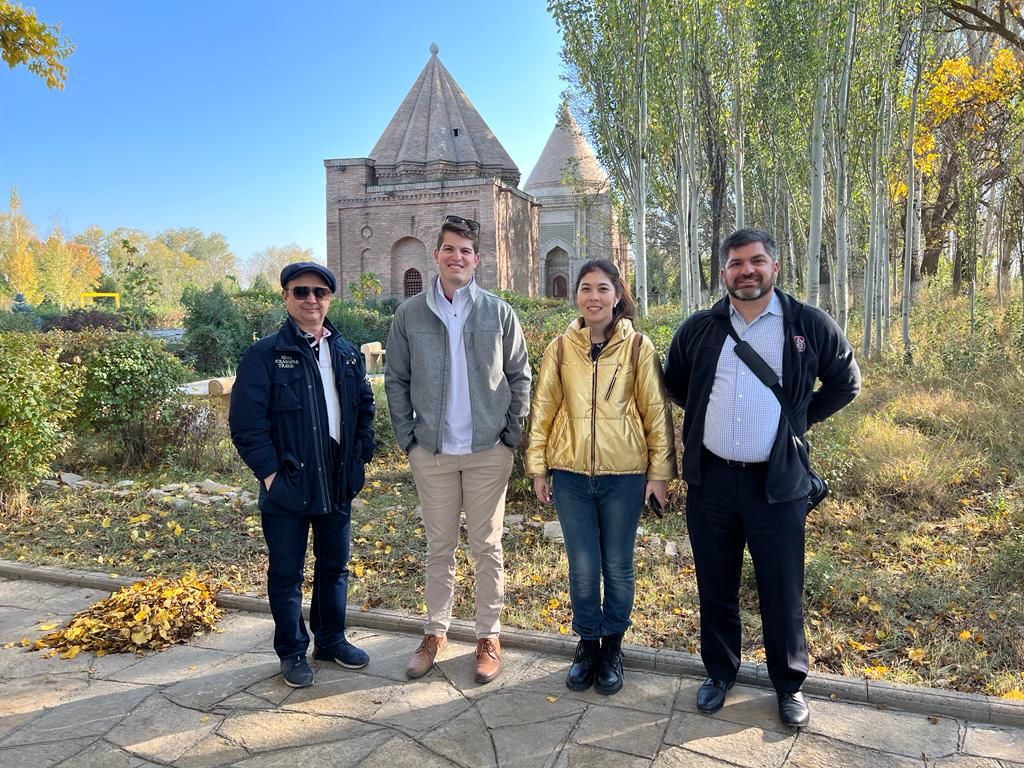
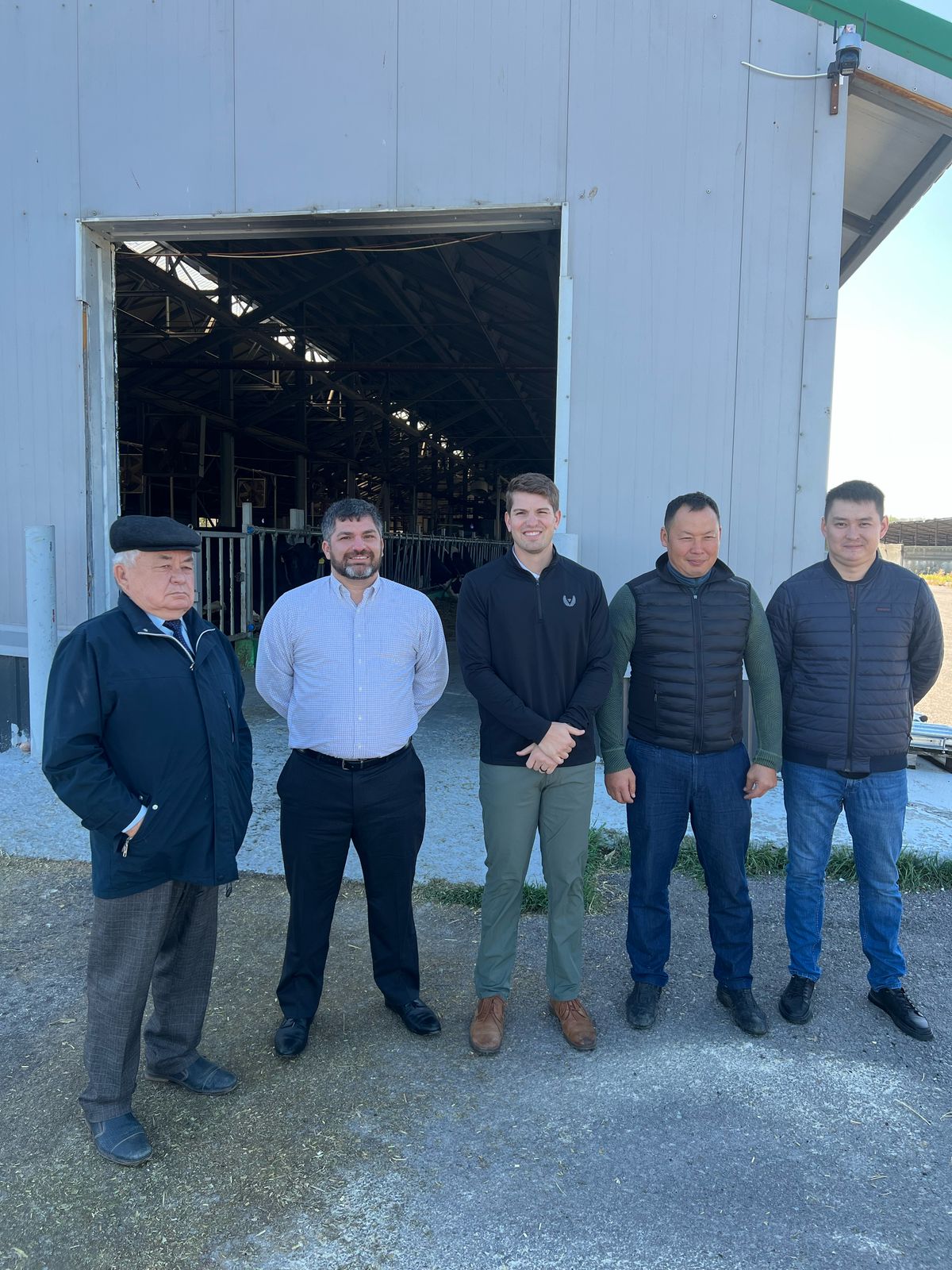
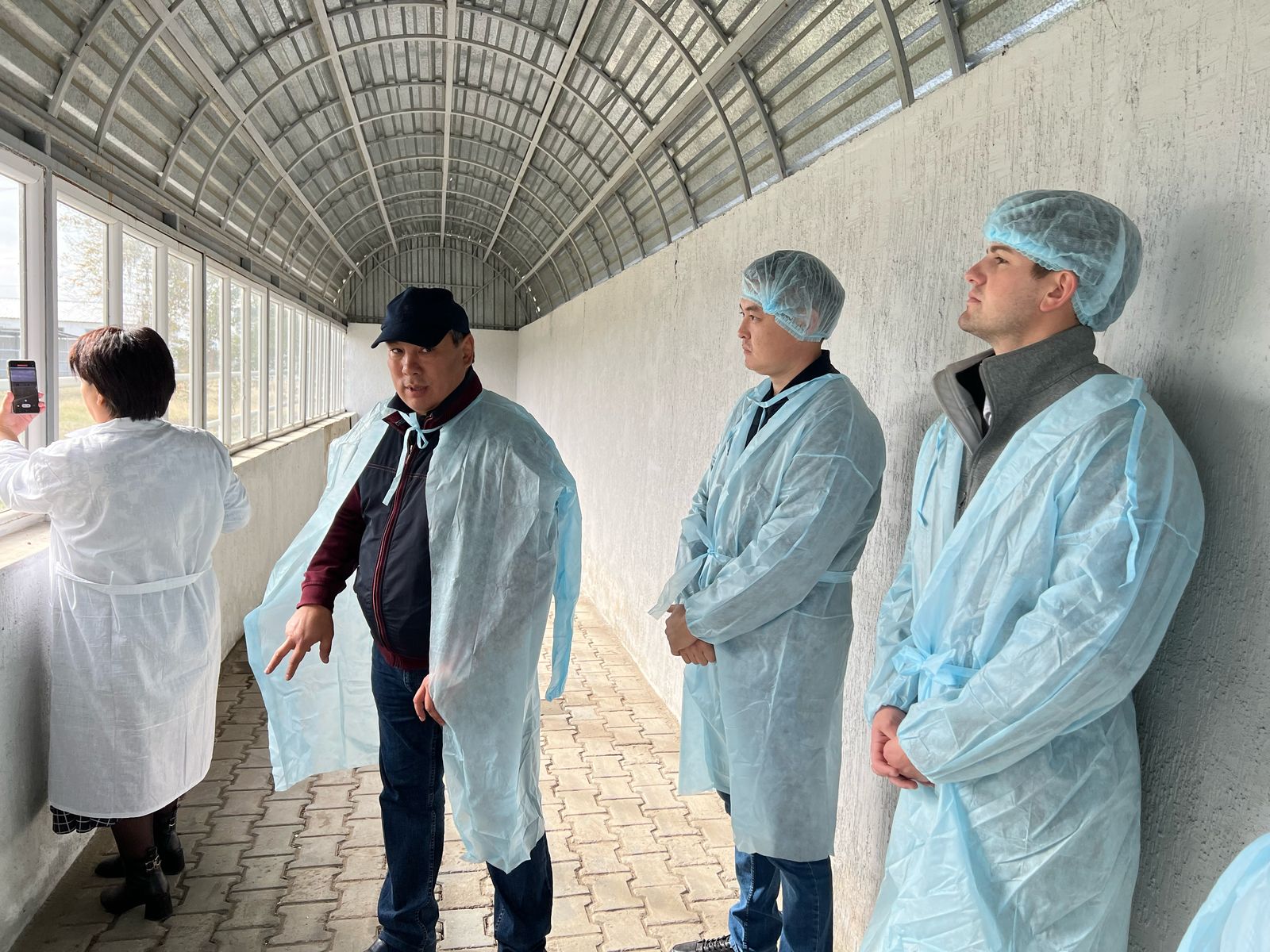
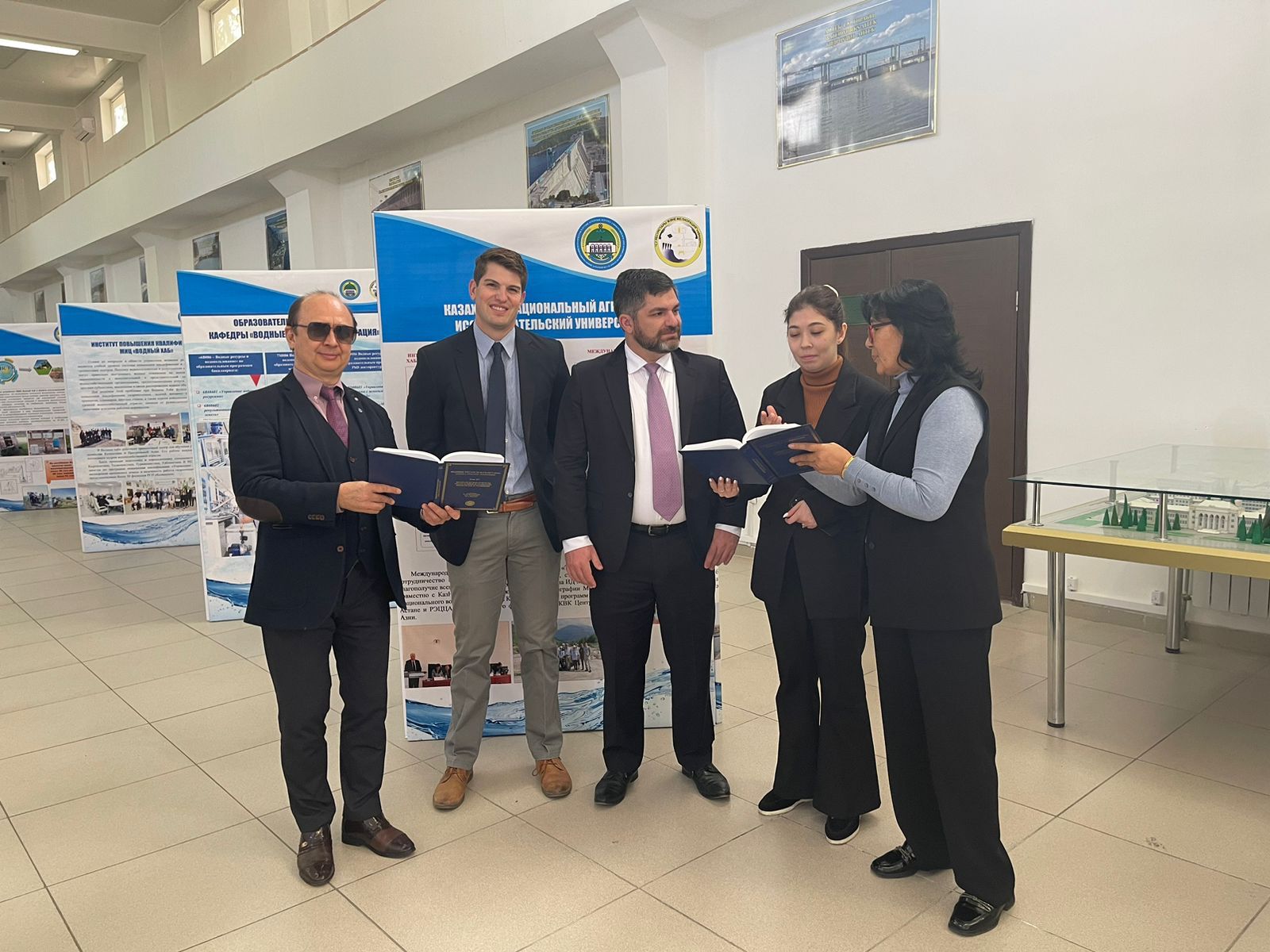
News
https://www.instagram.com/p/CyRImJmoEZq/?igsh=ZHJ1NGc3M3MzNmgy
https://www.instagram.com/reel/CyY3tppII72/?igsh=bnVtcGU1MmF6OWRw
https://www.instagram.com/reel/CyY3tppII72/?igsh=bnVtcGU1MmF6OWRw
FAO

The Food and Agriculture Organization of the United Nations (FAO) plays a crucial role in supporting Kazakhstan's agricultural sector and ensuring food security. The organization has been actively working in the country to address various challenges and promote sustainable development.
Some of the key areas of FAO's work in Kazakhstan include:
Improving Agricultural Practices: FAO supports the adoption of modern agricultural technologies and practices to increase productivity and efficiency. This includes promoting sustainable farming methods, such as precision agriculture and organic farming.
Strengthening Food Security: FAO works to ensure food security and nutrition for all by promoting sustainable food systems, reducing food loss and waste, and improving access to nutritious food.
Managing Natural Resources: FAO supports sustainable management of natural resources, including water, soil, and forests. This involves promoting sustainable land use practices, combating desertification, and protecting biodiversity.
Addressing Climate Change: FAO helps Kazakhstan adapt to climate change and mitigate its impacts on agriculture. This includes promoting climate-smart agriculture, developing early warning systems, and building resilience to climate shocks.
Animal Health and Plant Protection: FAO supports efforts to control and prevent animal and plant diseases, ensuring the health and safety of livestock and crops.
Capacity Building: FAO provides technical assistance and training to government officials, farmers, and other stakeholders to enhance their skills and knowledge in agriculture and food security.
By working closely with the government of Kazakhstan and other partners, FAO aims to contribute to a sustainable and prosperous agricultural sector in the country.
The International Institute for Green and Sustainable Development at the Kazakh National Agrarian Research University (KazNARU) organized a series of events dedicated to sustainable water resource management in honor of World Water Day. This year’s campaign focused on glacier preservation as a survival strategy for both people and the planet.
The events were held under the UN World Water Day initiative, supported by FAO, the Green Campus Program, the International Water Hub at KazNARU, and other organizations, coordinated by the International Institute for Green and Sustainable Development. KazNARU received an official certificate recognizing its contribution to promoting glacier protection and environmental sustainability.
Throughout the month, lectures, seminars, debates, and exhibitions were held to foster knowledge exchange and raise awareness about the role of glaciers in freshwater supply and ecosystem stability. Special attention was given to Central Asia, where glacier melt already impacts agriculture and water access.
Professor Rafis Abazov emphasized: “Preserving glaciers and water resources is a moral and strategic challenge. We must act now to secure the future for the next generations.”
A highlight of the week was a student-led Model UN simulation focused on strategic approaches to water governance. Inspired by FAO’s publication Water for Sustainable Food and Agriculture, participants simulated international negotiations, shared regional challenges, and proposed innovative solutions such as digital monitoring, sustainable irrigation, and community engagement. The event became a platform for knowledge exchange, showcasing the impact of education in shaping environmentally responsible thinking. Young delegates demonstrated strong preparation and a commitment to real action in water security and sustainability.
UN representative Vlastimil Samek noted: “When students take initiative, we see the true impact of education. Their energy and ideas are the driving force of change.”
The events concluded with a recognition ceremony and the adoption of a student declaration on water protection. KazNARU will continue advancing projects focused on sustainable development, educational impact, and international cooperation.
https://www.fao.org/agris/news/kazakhstan-strengthens-agricultural-knowledge-sharing-through-agris-0
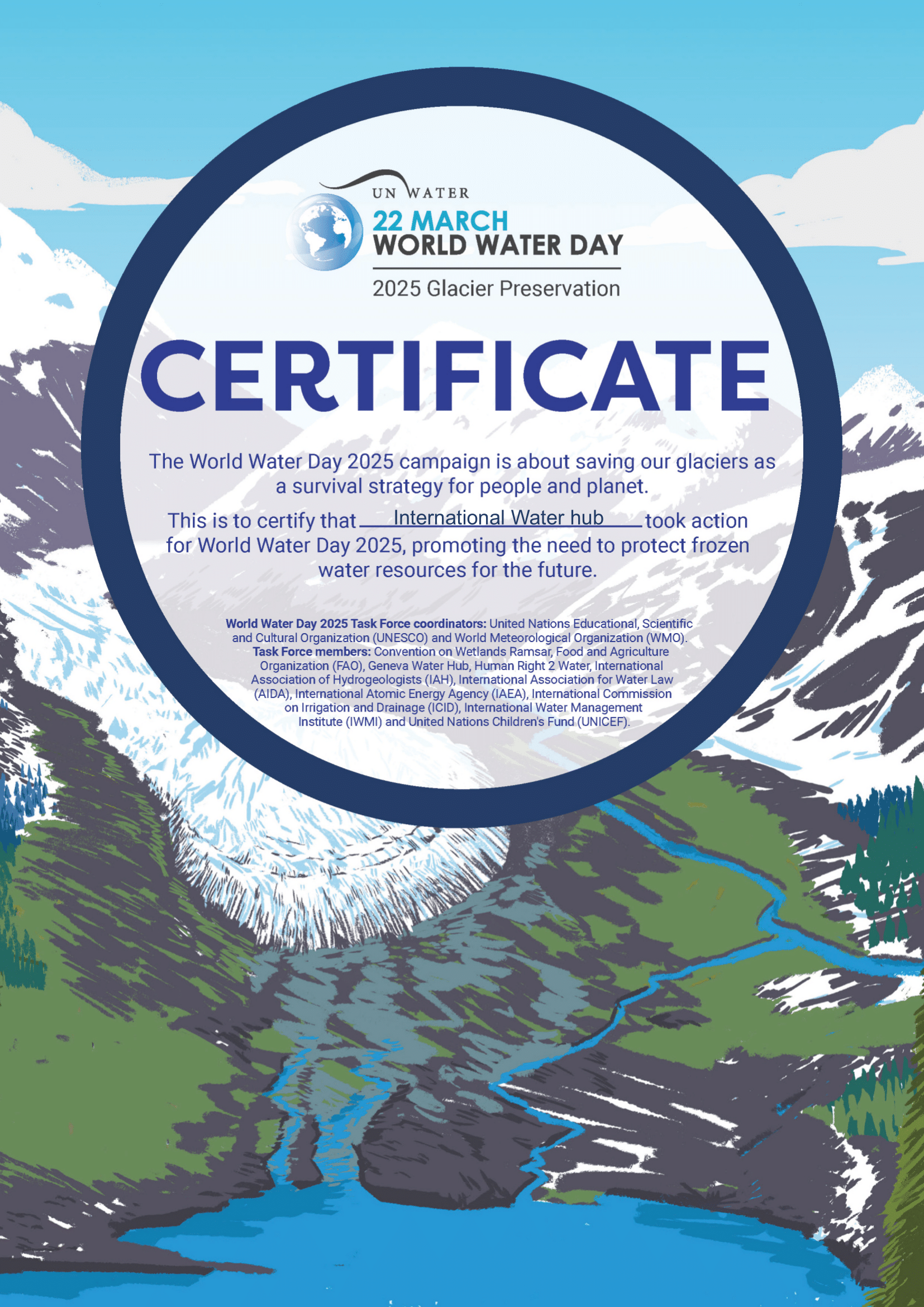
UNAI
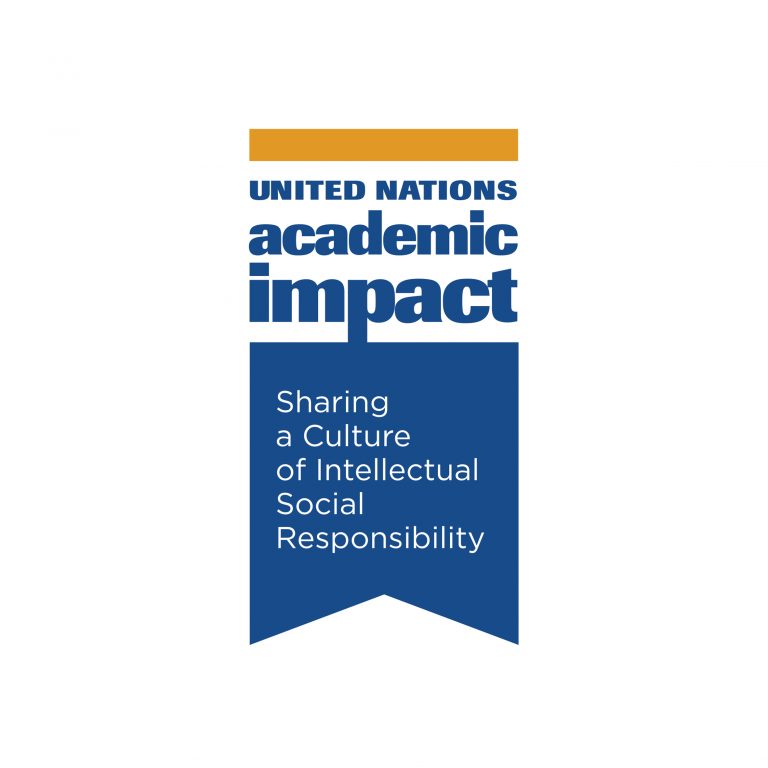
The United Nations Academic Impact (UNAI) is an initiative that engages institutions of higher education with the United Nations in supporting and contributing to the realization of the Organization's purposes and principles, including the promotion and protection of human rights, access to education, sustainability and conflict resolution.
Since 2010, UNAI has created a vibrant network of institutions of higher education, connecting students, academics, scientists, and researchers worldwide. There are over 1,600 member institutions in more than 150 countries that reach over 25 million people in the education and research sectors around the globe representing a global diversity of regions and a thematic wealth of disciplines.
The work of these institutions is vital to achieving the Sustainable Development Goals as they serve as incubators of new ideas and solutions to the many global challenges we face. United Nations Academic Impact provides the integral link to these stakeholders to ensure that the international community harnesses the energy and innovation of young people and the research community in service to humanity.
United Nations Academic Impact is part of the Higher Education Sustainability Initiative (HESI) and is informed by a commitment to support and advance ten basic principles.
Every subject and discipline can have a UN imprint. We want relevant institutions to recognize this link and, often without additional effort or expense, undertake activities that can directly support United Nations mandates and objectives.
UNAI assists stakeholders in this regard by disseminating information on UN initiatives and activities, providing ideas on how these activities can be applied at the local level on college campuses, in classrooms and in communities, and by providing a platform where university students, academics and researchers can connect and share ideas, research and resources to further the Sustainable Development Goals and other UN mandates.
There is no cost or fee for universities to join UNAI. The sole responsibility is for each member institution to actively demonstrate support of the UNAI principles and the Sustainable Development Goals. It is our hope that this support can find reflection in the United Nations’ own policies and programmes, allowing for a sharing of experiences and effective practices as well as the infusion of scholarship to advance social, economic and sustainability objectives.
Member institutions of UNAI are able to submit stories about teaching methodologies, academic research or initiatives being done on campus to be promoted on our multilingual website. Furthermore, member institutions can engage through our SDGs workshops, training sessions and tailor-made publications which act as capacity-building tools. UNAI also advertises fellowship and scholarship opportunities, academic events and calls for inputs, papers or submissions for our member institutions, their student body, staff and faculty.
World Bank
The World Bank has been a significant partner in Kazakhstan's development journey, providing financial and technical assistance to support various sectors. The Bank's partnership with Kazakhstan is guided by the Country Partnership Framework (CPF) for 2020-2025, which focuses on accelerating the country's transformation into a modern, knowledge-based economy.
Key areas of the World Bank's work in Kazakhstan include:
Economic Development: The World Bank supports Kazakhstan's efforts to diversify its economy and reduce its reliance on natural resources. This includes promoting private sector development, improving the investment climate, and fostering innovation.
Infrastructure Development: The Bank provides financing and technical assistance for infrastructure projects, such as transportation, energy, and water supply, to enhance connectivity and improve living standards.
Social Development: The World Bank supports programs aimed at reducing poverty and inequality, improving education and healthcare, and strengthening social protection systems.
Environmental Sustainability: The Bank promotes sustainable resource management and climate change mitigation. This includes supporting projects in renewable energy, energy efficiency, and sustainable agriculture.
By working closely with the Government of Kazakhstan, the World Bank has contributed to significant progress in various sectors, including economic growth, poverty reduction, and improved public services. The Bank's continued partnership with Kazakhstan is crucial for achieving the country's long-term development goals.
UN PRIME
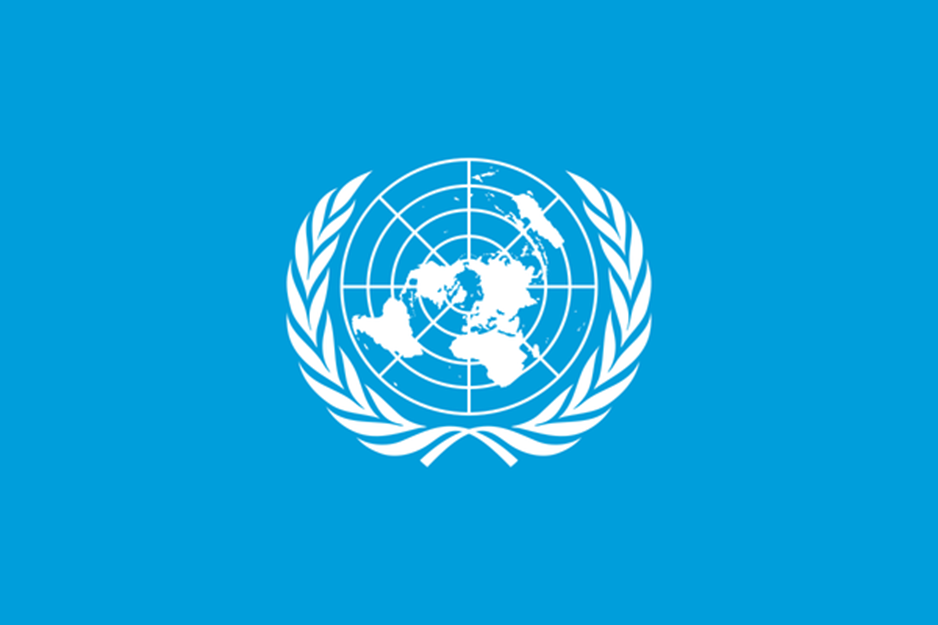
The United Nations Charter established six main organs of the United Nations, including the Security Council. It gives primary responsibility for maintaining international peace and security to the Security Council, which may meet whenever peace is threatened.
According to the Charter, the United Nations has four purposes:
- to maintain international peace and security;
- to develop friendly relations among nations;
- to cooperate in solving international problems and in promoting respect for human rights;
- and to be a centre for harmonizing the actions of nations.
All members of the United Nations agree to accept and carry out the decisions of the Security Council. While other organs of the United Nations make recommendations to member states, only the Security Council has the power to make decisions that member states are then obligated to implement under the Charter.
MAINTAINING PEACE AND SECURITY
When a complaint concerning a threat to peace is brought before it, the Council’s first action is usually to recommend that the parties try to reach agreement by peaceful means. The Council may:
- set forth principles for such an agreement;
- undertake investigation and mediation, in some cases;
- dispatch a mission;
- appoint special envoys; or
- request the Secretary-General to use his good offices to achieve a pacific settlement of the dispute.
When a dispute leads to hostilities, the Council’s primary concern is to bring them to an end as soon as possible. In that case, the Council may:
- issue ceasefire directives that can help prevent an escalation of the conflict;
- dispatch military observers or a peacekeeping force to help reduce tensions, separate opposing forces and establish a calm in which peaceful settlements may be sought.
Beyond this, the Council may opt for enforcement measures, including:
- economic sanctions, arms embargoes, financial penalties and restrictions, and travel bans;
- severance of diplomatic relations;
- blockade;
- or even collective military action.
A chief concern is to focus action on those responsible for the policies or practices condemned by the international community, while minimizing the impact of the measures taken on other parts of the population and economy.


GIZ
The German Society for International Cooperation (GIZ) has been actively working in Kazakhstan since the early 1990s. The organization is dedicated to supporting sustainable development and economic growth in the country. GIZ's work in Kazakhstan focuses on several key areas:
• Economic Development and Good Governance: GIZ supports the development of a strong and sustainable economy by promoting good governance, improving the investment climate, and fostering small and medium-sized enterprises.
• Education and Vocational Training: GIZ contributes to the development of a skilled workforce by supporting education and vocational training institutions. This includes improving the quality of education, promoting dual vocational training, and fostering innovation in education.
• Environment and Climate Change: GIZ supports Kazakhstan in addressing environmental challenges, such as climate change, air pollution, and water scarcity. This includes promoting sustainable resource management, renewable energy, and climate-resilient agriculture.
Through its projects and initiatives, GIZ aims to contribute to Kazakhstan's sustainable development and improve the lives of its citizens.
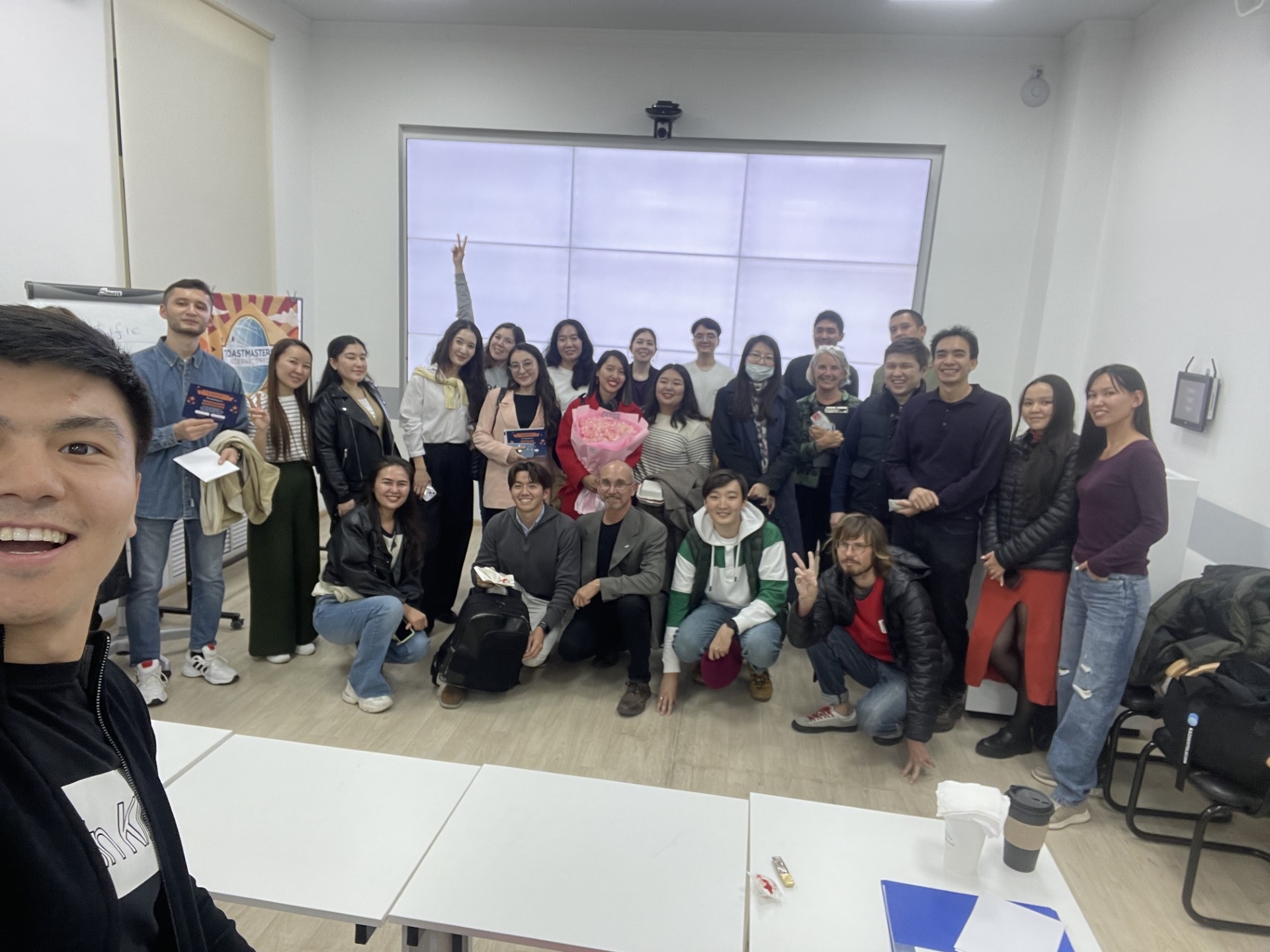
Contacts
- Almaty, Abay Avenue, 8
- International Office:
+7(727) 264-19-95 262-11-08 - e-mail: info@kaznaru.edu.kz
DSDM
Conference DSDM 2025
THE 5th INTERNATIONAL INTERDISCIPLINARY SCIENTIFIC CONFERENCE "DIGITALISATION AND SUSTAINABILITY FOR DEVELOPMENT MANAGEMENT:
ECONOMIC, SOCIAL, AND ENVIRONMENTAL ASPECTS"
(21-23 November 2025, London, UK)
ORGANISERS:
The London Academy of Science and Business, London, UK
Institute for International Cooperation Development, Poznan, Poland
Institute for Sustainable Development and International Relations, WSB University, Dabrowa Gornicza, Poland
Scientific & Organising Committee
Prof. Dr. Aleksy Kwilinski, The London Academy of Science and Business, London, United Kingdom
Prof. Dr. Alfonso Infante Moro, Huelva University, Huelva, Spain
Prof. Dr. Andrew Zimbroff, University of Nebraska-Lincoln, Lincoln, United States
Prof. Dr. Gamal Sayed Ahmed Khalifa, Higher Colleges of Technology, Abu Dhabi, United Arab Emirates
Prof. Dr. Jindřich Špička, Czech University of Life Sciences, Prague, Czech Republic
Prof. Dr. Łukasz Wróblewski, WSB University, Dabrowa Gornicza, Poland
Prof. Dr. Sebastian Kot, Czestochowa University of Technology, Czestochowa, Poland
Prof. Dr. Pedro Miguel Alves Ribeiro Correia, University of Coimbra, Coimbra, Portugal
Prof. Dr. Lester Ingber, Physical Studies Institute LLC, Hillsboro, United States
Prof. Dr. Matheus Koengkan, University of Coimbra, Coimbra, Portugal
Prof. Dr. Katarzyna Szczepańska-Woszczyna, WSB University, Dabrowa Gornicza, Poland
Prof. Dr. Zdzisława Dacko-Pikiewicz, WSB University, Dabrowa Gornicza, Poland
Prof. Dr. Tetyana Pimonenko, WSB University, Dabrowa Gornicza, Poland
Prof. Dr. Jan Polcyn, Stanislaw Staszic University of Applied Sciences in Pila, Poland
Prof. Dr. Oleksii Lyulyov, WSB University, Dabrowa Gornicza, Poland
Prof. Dr. Rafis Abazov, Columbia University, NYC, United States
Prof. Dr. Manuela Tvaronavičienė, Vilnius Gediminas Technical University, Vilnius, Republic of Lithuania
Prof. Dr. Abimbola Olukemi Windapo, University of Cape Town, Cape Town, South Africa
Conference Languages: English
Deadline: August 15, 2024
Conference Venue: London, UK (online)
Purpose of the Conference
The conference presupposes a certain degree of synergy in international scientific cooperation among representatives of science and practice in the issues of digitalization and sustainability for development management. Increasing the intensity of scientific and technological progress makes science interdisciplinary and opens new horizons for scientific thought. Exchange of views and systematization of knowledge are fundamental factors in setting development priorities, optimizing processes and achieving bifurcation for various scales and aspects of economic, social, and ecological development.
The Conference will cover topics such as: digitalisation and sustainability; development management; forecasting and foresighting; artificial intelligence; cognitive technologies; energy management; education systems; digital economy; management of innovations; green energy development; smart grid; digital marketing.
Topics of the Conference sections:
1. Theory of sustainable economic development in the context of digitalisation.
2. Digitalisation and sustainability in regional and global economic development.
3. Digital marketing for sustainable economic development.
4. Artificial intelligence and cognitive technologies in sustainable development.
5. Energy management and sustainable economic development.
6. Digitalisation and sustainability in the education system.
7. Environmental aspects of sustainable development in the digital economy.
8. Green human capital for organisational sustainability management.
9. Smart grid, information technologies and energy systems of the future.
10. Energy security and the process of globalisation.
11. Innovation management in the energy sector.
12. Marketing for the development of green energy.
Participation in the Conference is free.
Proceedings of the conference can be published in peer-reviewed journals, for an additional fee, which is determined and charged in accordance with the publishers' terms. Certificates will be sent to all conference participants who will make reports.
Requirements for submitting articles are described on the websites of journals:
Virtual Economics (Scopus - Q1, as well);
Forum Scientiae Oeconomia (Scopus - Q3, as well);
Cultural Management: Science and Education (CMSE) (Scopus - Q2, as well);
Marketing and Management of Innovation (Web of Science - Q4, as well);
Special Issue Breakthroughs in Green Technology Innovations: Paving the Way to Environmental Sustainability and Energy Efficiency in Sustainability (Scopus - Q1, Web of Science, as well);
Special Issue Integrating the Metaverse, Cryptocurrency, and AI for Sustainable Financial Development in Journal of Risk and Financial Management (Scopus - Q1, as well).
To register for the conference, you need to follow the link and fill out the form.
In case of any further questions, please contact: dsdm.esea@gmail.com
